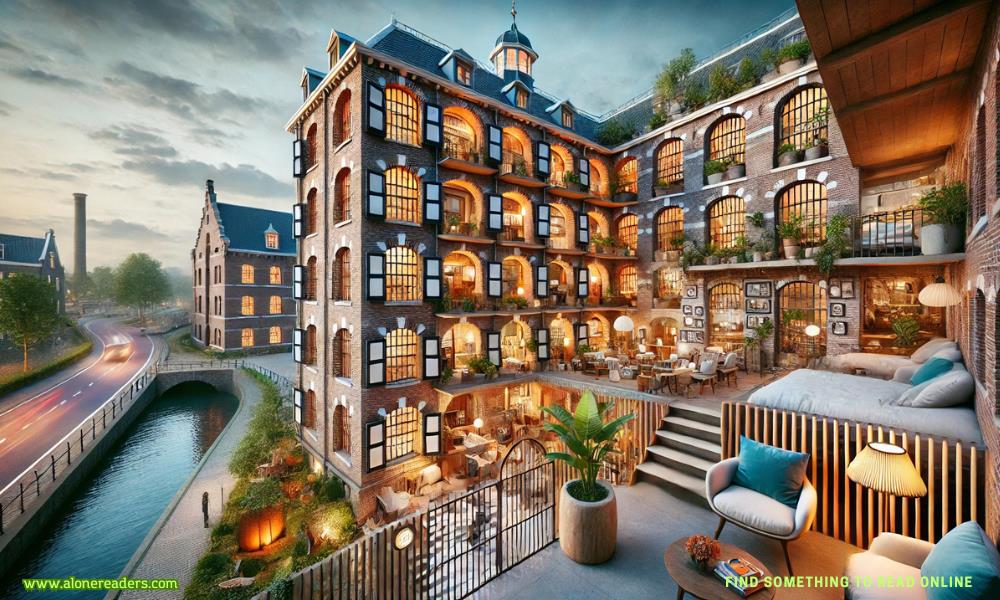
The Netherlands has long been recognized as a pioneer in progressive policies and innovative solutions to societal challenges. A striking example of this ingenuity is the country’s decision to transform its unused prisons into hotels and other functional spaces. This unconventional approach was born out of a surprising issue: a shortage of prisoners. Unlike many nations grappling with overcrowded penitentiaries, the Netherlands has seen its incarceration rates drop significantly over the past two decades. This trend, attributed to a combination of effective crime prevention strategies, alternative sentencing methods, and a focus on rehabilitation, has left several prisons vacant, prompting creative repurposing efforts.
The decline in the prison population in the Netherlands reflects a broader societal shift. The country has prioritized restorative justice and rehabilitation over punitive measures. Non-violent offenders often receive community service or electronic monitoring instead of custodial sentences. Additionally, programs aimed at addressing the root causes of criminal behavior, such as addiction treatment and job training, have significantly reduced recidivism rates. These policies not only promote a more humane approach to justice but also lead to long-term cost savings for the government. With fewer inmates entering the system, the demand for prison facilities has dwindled, resulting in closures and surplus capacity.
Faced with an abundance of empty prison buildings, the Dutch government sought innovative ways to repurpose these structures. Transforming prisons into hotels has emerged as one of the most creative and practical solutions. These conversions not only breathe new life into otherwise dormant spaces but also contribute to the local economy by attracting tourists and creating jobs. Formerly austere and utilitarian, these buildings are being reimagined as unique accommodations that blend historical architecture with modern comforts.
One notable example is the Het Arresthuis in Roermond, a former prison that has been transformed into a luxury hotel. Once housing inmates behind cold steel bars, the building now offers stylish rooms, gourmet dining, and spa facilities. The design retains certain elements of its past, such as cell doors and barred windows, while incorporating plush furnishings and contemporary decor. Guests are drawn to the novelty of staying in a former prison, and the property’s unique history becomes part of its charm.
This approach extends beyond hotels. Other empty prisons in the Netherlands have been repurposed into community centers, offices, and even student housing. These projects not only address the immediate need for functional spaces but also preserve architectural heritage. Many of these structures date back to the 19th century, boasting intricate designs and robust construction. By repurposing them, the Netherlands avoids the environmental and economic costs of demolition while embracing sustainable development practices.
The transformation of prisons into hotels also highlights broader lessons in urban planning and adaptive reuse. Cities worldwide face challenges related to underutilized spaces and changing societal needs. The Netherlands’ approach demonstrates the potential for creative solutions to turn these challenges into opportunities. Repurposing buildings rather than demolishing them is an environmentally friendly choice, reducing waste and conserving resources. It also fosters a sense of community by giving new purpose to landmarks that might otherwise be neglected.
While the concept of turning prisons into hotels may seem unusual, it aligns with the Netherlands’ reputation for innovation and pragmatism. The country has consistently embraced forward-thinking policies, whether in energy sustainability, water management, or social justice. This project is yet another testament to the Dutch ability to adapt to changing circumstances while maintaining a commitment to progress.
As crime rates continue to decline and societal attitudes toward justice evolve, the Netherlands’ approach serves as a model for other nations. By viewing empty prisons not as a problem but as an opportunity, the country has demonstrated the power of innovative thinking and strategic planning. Whether as hotels, student residences, or community hubs, these repurposed prisons symbolize a forward-looking society that values creativity, sustainability, and inclusivity. The transformation of these spaces offers more than just practical solutions; it inspires a broader reimagining of how we use the built environment in ways that benefit both people and the planet.